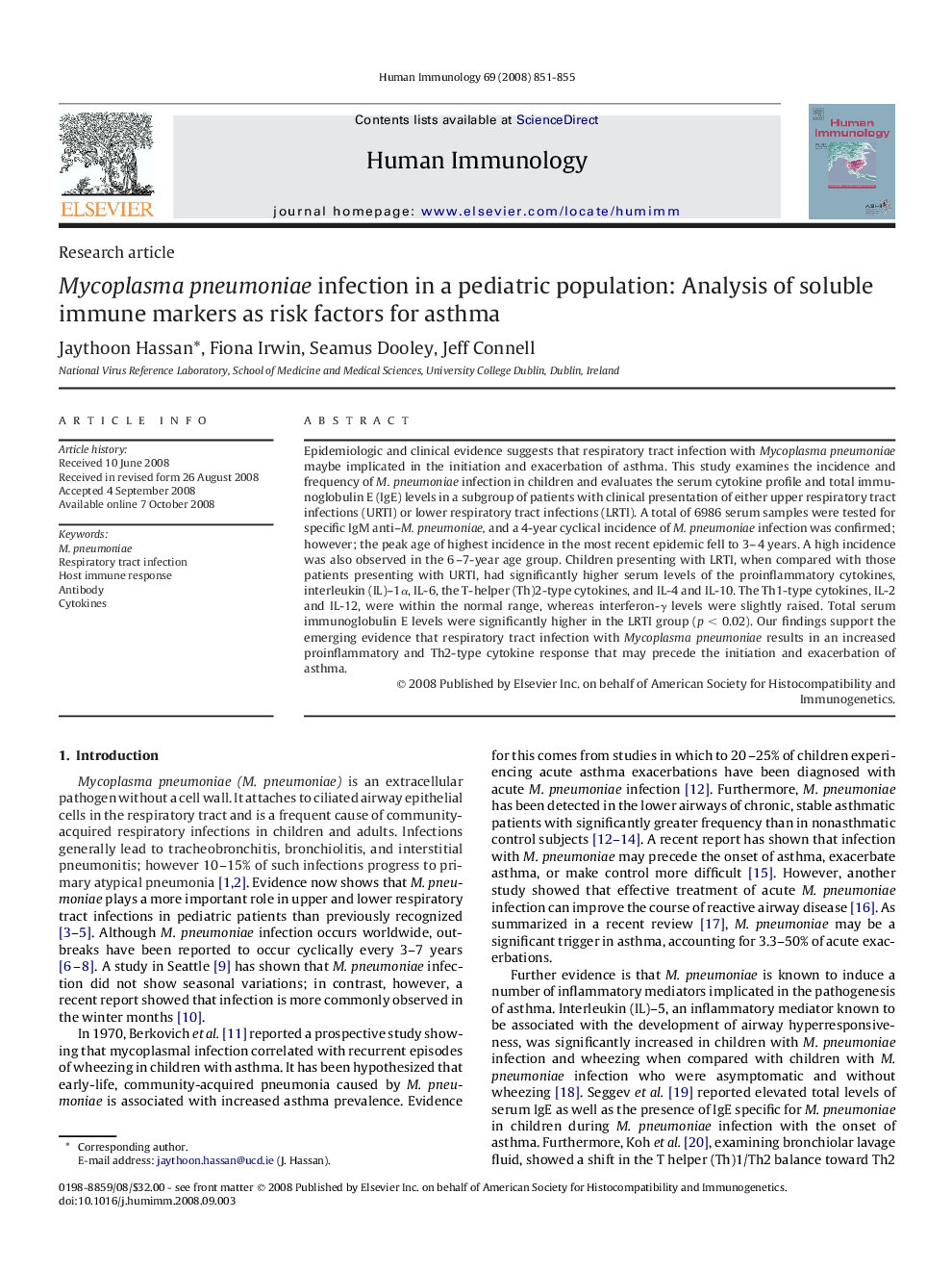| Article ID | Journal | Published Year | Pages | File Type |
|---|---|---|---|---|
| 3351481 | Human Immunology | 2008 | 5 Pages |
Epidemiologic and clinical evidence suggests that respiratory tract infection with Mycoplasma pneumoniae maybe implicated in the initiation and exacerbation of asthma. This study examines the incidence and frequency of M. pneumoniae infection in children and evaluates the serum cytokine profile and total immunoglobulin E (IgE) levels in a subgroup of patients with clinical presentation of either upper respiratory tract infections (URTI) or lower respiratory tract infections (LRTI). A total of 6986 serum samples were tested for specific IgM anti–M. pneumoniae, and a 4-year cyclical incidence of M. pneumoniae infection was confirmed; however; the peak age of highest incidence in the most recent epidemic fell to 3–4 years. A high incidence was also observed in the 6–7-year age group. Children presenting with LRTI, when compared with those patients presenting with URTI, had significantly higher serum levels of the proinflammatory cytokines, interleukin (IL)–1α, IL-6, the T-helper (Th)2-type cytokines, and IL-4 and IL-10. The Th1-type cytokines, IL-2 and IL-12, were within the normal range, whereas interferon-γ levels were slightly raised. Total serum immunoglobulin E levels were significantly higher in the LRTI group (p < 0.02). Our findings support the emerging evidence that respiratory tract infection with Mycoplasma pneumoniae results in an increased proinflammatory and Th2-type cytokine response that may precede the initiation and exacerbation of asthma.
